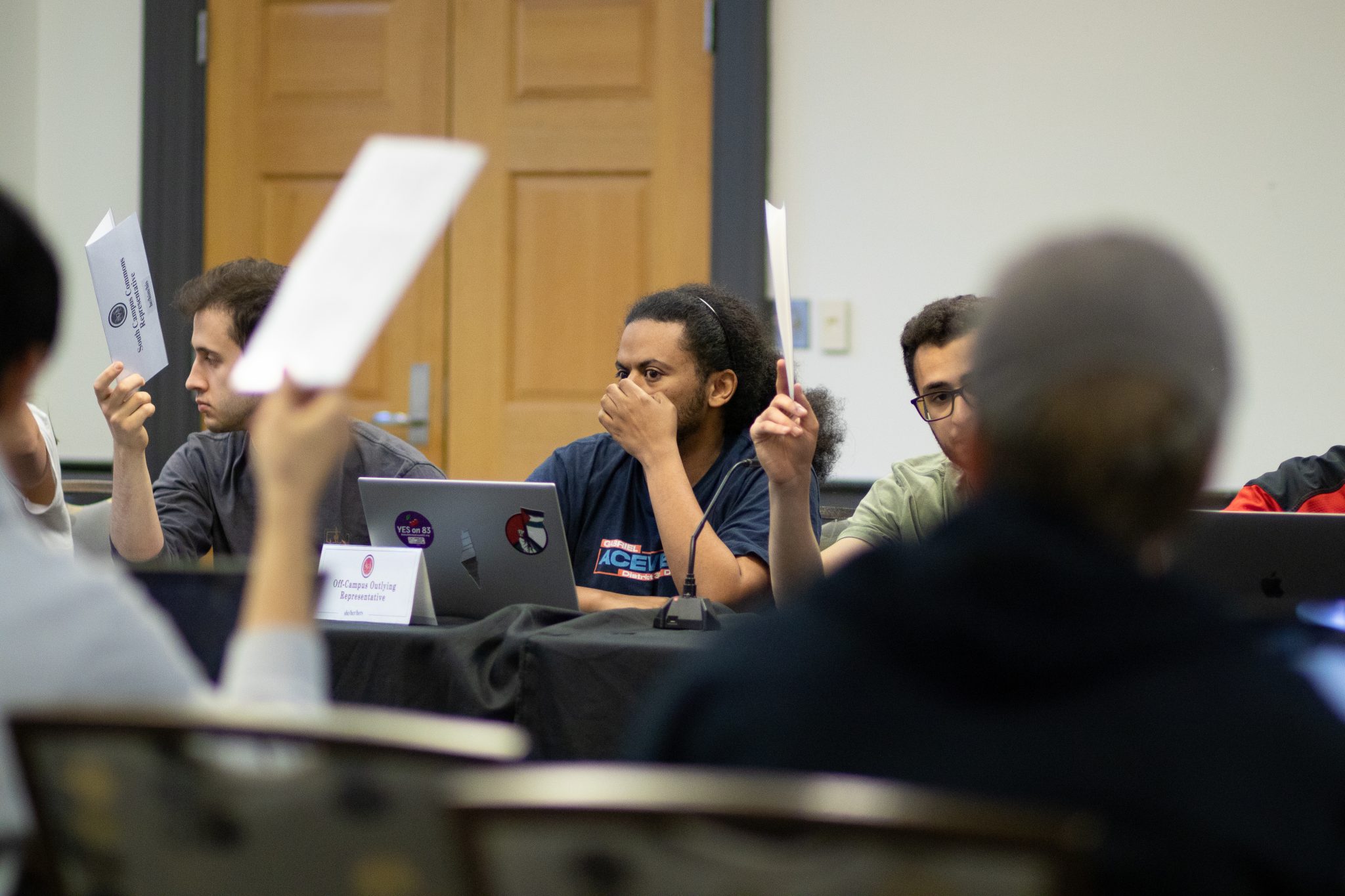Views expressed in opinion columns are the author’s own.
When the United States government consists of puppy-murderers and bribe-accepters, we should probably take a step back and ask a simple question: why? One explanation may be that although not everyone who seeks power and influence attains it, those who do achieve status have intentionally sought it out.
This isn’t to vilify those who end up in power as a whole — after all, we can’t condemn those who play the game to the best of their abilities in a system — but it is worth noting that we can change the rules of such a game, particularly on a campus that prides itself on pushing for democracy.
Here, the University of Maryland Student Government Association has often found itself under scrutiny. From trying to disqualify the opposing electoral party with fraudulent signatures to abandoning the pretense of democracy as a whole with the unelected appointment of a vast majority of electable positions, the need for reform is evident.
For the SGA to be realized as a truly democratic institution, it must abandon its flawed elections altogether and embrace an opt-out lottery system.
While voting in elections has become synonymous with democracy, we must remember that the essence of democracy since its inception in ancient Greece has not been about elections — or, more accurately — choosing between two seemingly indistinguishable party names and platforms at this university every year.
Instead, democracy is the act of citizen participation and oversight in the policies that run their lives. Though elections can help citizens have a say and theoretically act as a proxy for the people’s will, they have failed that purpose both nationwide and on our campus.
By adopting a lottery system for every position in the SGA, everyday students’ voices will be heard because they get to speak for themselves.
For instance, in conjunction with more than 70 percent of positions being filled via appointment, about half of the SGA executive board is declared in government and politics or public policy. As a government and politics student, I feel more than represented by my major. These students are probably wholly qualified for these roles, and it makes sense that students in these majors and minors gravitate towards running for elections — but the central question regarding student governance remains: is this really “A Voice for All Terps?”
Although the legislative branch is better organized to represent student diversity with specific seats for various campus communities, the system is missing the valuable insight of swathes of brilliant Terps who couldn’t care about the nitty-gritty of student governance but care about their peers (hence the high unelected appointment rates). Those are some of the people that we should want in leadership positions.
An opt-out lottery gives these students a chance to embrace something new and gives the campus a chance to find real change. Furthermore, the ability to opt out allows students to maintain agency and autonomy in such a process. The barrier to entry for student politics would be reduced to nothing as opposed to the current status quo that requires relentless campaigning, ticket-forming, and networking. The pursuit of true democratic governance on campus begins with increasing accessibility for the many to make change, not by rewarding the few who have the time to dedicate themselves to such an endeavor.
Even if most students selected in the lottery for SGA positions were to opt-out, the process cannot be gamed and would still result in many more potential candidates than the current system. By preventing the gaming of the election system, we stray further from unpopular contemporary American political norms and toward a more equitable form of democracy.
Some may argue that this could lead to unqualified representatives or poor governance: I ask which part, if any, of the current “election” system prevents that. A 70 percent appointment rate is prime grounds for the incompetence that we often associate with nepotism and connections in politics. The stratified representation model of the SGA’s legislative branch could combine with a lottery, to ensure equitable representation is not thwarted by statistical randomness. While a lottery system, or any governance system, cannot magically avoid poor outcomes it gets us as a community closer to actualizing the democratic ideals that we hold.
The days of voting between two tickets named after vague, positive verbs would be behind us. Instead, the SGA lottery would usher in a simpler, more effective era of democracy, opportunity and perspective.
By dismantling the traditional barriers to entry and offering every student an equal chance to participate, we foster a culture where voices of all backgrounds are heard and represented. This shift can help remind us that governance is not a privilege reserved for the few, but a responsibility shared by all.
Rohin Mishra is a senior economics and government and politics major. He can be reached at rohinpmishra@gmail.com.



